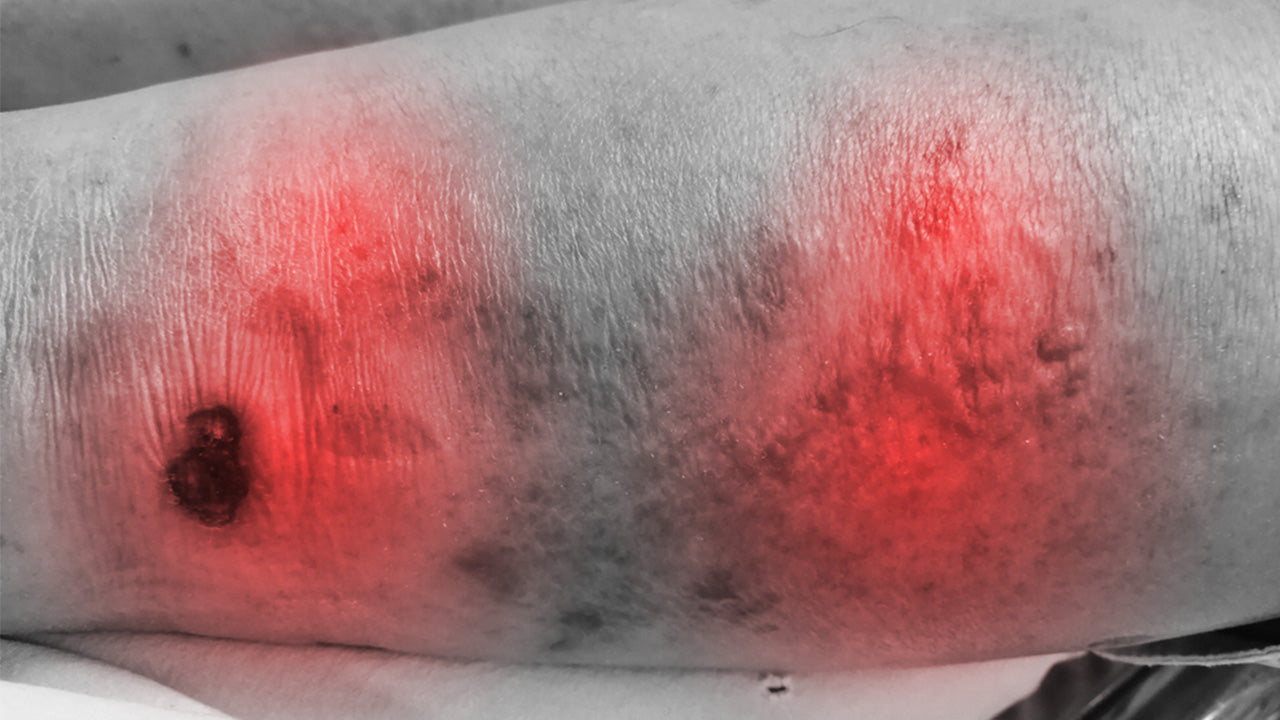Orthorexia: When Eating Healthy Becomes an Obsession
 By: by Amino Science
By: by Amino Science

Orthorexia nervosa involves an obsession with “clean eating” and physical activity that align with a person’s health perceptions (whether true, unverified, or false), which they typically glean from an array of readily accessible sources—like social media, books, magazines, and health journals. “Clean eating” is a phrase coined recently to describe food ingestion phenomena, like whole food exclusivity, raw food consumption, farm-to-table eating, gluten-free eating, and other restrictive dietary practices. Over time, such an obsession with healthy eating and physical wellness can lead to rather serious complications, including malnutrition and death, if orthorexia is not properly treated.
Orthorexia is a very serious eating disorder that deserves further scrutiny as a mental illness, but it is not currently listed in the Diagnostic and Statistical Manual of Mental Disorders (DSM)—a professional manual broadly used in the mental health community. In general, eating disorders are mental afflictions that negatively affect a person’s physical and mental well-being—for which orthorexia nervosa qualifies. Anorexia nervosa, bulimia nervosa, and binge eating disorder are more commonly recognized eating disorders.
What Is Orthorexia?
Orthorexia is characterized by an eating healthy obsession. In the late 1990s, physician Steven Bratman coined the term orthorexia, which translates to “fixation on righteous eating.” Sufferers are preoccupied with what food they consume, how it is consumed, the amount they consume, and when they consume it.
Orthorexia sufferers religiously create self-imposed rules for eating and physical activity that are often unsubstantiated by the medical community. The self-imposed penalty for failing to meet these standards may default to feelings of insecurity, despair, unworthiness, or self-loathing. But more often that not, an obsessed individual who fulfills extravagant eating and physical activity goals can develop a superiority complex and/or feelings of self-worthiness—insidious mental incentives for maintaining this destructive behavioral pattern.
The influx of food and health-related propaganda from unverified sources, like social media, is steadily increasing. Meanwhile, awareness of orthorexia is on the rise—according to the National Eating Disorders Association (NEDA), which submits that dieting is often a precursor to developing an eating disorder among teenagers and young adults. NEDA published that the more restrictive the diet, the more likely people will develop an eating disorder. Without proper diagnostic mechanisms in place, it is difficult to determine demographical breakdowns (age, gender, etc.) of those affected by orthorexia.
This type of disordered eating is, however, marked by the following warning signs and symptoms of orthorexia:
- A fixation on eating healthy
- Strict adherence to eating habits
- Close monitoring of the quality and quantity of food eaten
- Cutting out entire food groups and other rigorous eating restrictions
- A preoccupation with eating healthy vs. a preoccupation with body image
- Anxiety over getting sick or developing a disease
- Weight loss

Mental Health Concerns
The cause of orthorexia is not clear; however, preliminary findings such as those published in the journal Neuropsychiatric Disease and Treatment reveal that there are profound functional similarities among an existing spectrum of mental health disorders and orthorexia.
Obsessive-compulsive disorder (OCD) involves recurrent thoughts or habits surrounding a particular thing, while orthorexic patients often share an inflated concern over food purity, and a “strong need to arrange food and eat in a ritualized manner.” Anorexic individuals are preoccupied with notions of perfection and a demand to take control—which are prominent symptoms among orthorexic sufferers. Obsessive-compulsive personality disorder (OCPD) and orthorexia also share perfectionism traits, as well as extreme thinking, unrestrained devotion, acute attention to details, and preoccupation with morality. Orthorexic individuals, like anxiety sufferers, spend a disproportionate amount of time and energy addressing perceived physical illnesses or flaws—with fear being the motivating trigger for both mental conditions.
Health Myths Debunked
Making firm daily decisions about your health based on random information is never a good idea. Always consult trusted sources (licensed health practitioners, your doctor, nutritionists, etc.) before committing to or dedicating large amounts of time to incorporating new health regimens into your life. Eliminating food groups momentarily maligned on social media may cause you substantial health risks. Health experts would agree that balance and moderation are the crucial keys to a healthy diet and overall wellness.
Nature has designed many foods to be eaten together for deliberate nutritional effect. For example, the essential nutrient iron is necessary for proper cardiovascular function and blood flow. Anemic individuals do not have enough iron to produce hemoglobin, which enables red blood cells to carry oxygenated blood throughout the body. Cutting out meat and seafood from your diet means you are missing heme iron that your body more readily absorbs than the non-heme iron found in sources like dark leafy green vegetables and chickpeas. Cutting out citrusy foods or berries because of a fear of ingesting pesticides, for instance, prevents the absorption of proper vitamin C levels that enable you to better absorb non-heme iron.
Meats and dairy products usually get “bad raps” in social media spaces. Every so often, propaganda surrounding these foods admonishes followers to eat less of or completely eradicate these foods from their diets. But according to a 2015 report published in the journal Scientific Reports, certain proteins extracted from meats and dairy products promote gut health by allowing flora to thrive. Gut bacteria are a necessary part of the human immune system, as they directly defend the body against harmful pathogens.
Consider that not all carbohydrates are bad. Eating excessive amounts of carbohydrates loaded with saturated fats, sodium, and sugars may cause problems. However, when eaten in moderation, carbohydrates (like whole-grain pastas, breads, and rice) provide great health benefits, as they are excellent sources of fiber, metabolism-nurturing B vitamins, and other essential nutrients. Some dietary standards recommend that carbohydrates comprise at least one third of your dietary intake.
Online hacks who emphasize burning calories through long, grueling cardiovascular exercise often fail to highlight that weight training builds muscles that burn calories more efficiently than cardio does. Moreover, be cautious when restricting food while exercising, as this practice depends on the types of exercise you intend to pursue. Fasting while exercising is not effective for heavy lifters, so be sure to eat a fast-absorbing protein meal at least 30-minutes before a rigorous weightlifting session. Even better? Supplement with an athletic performance blend of amino acids to boost endurance and build greater lean muscle mass.
Orthorexia Complications
While it’s advantageous to decipher healthy food choices and physical activity facts from fiction, eating disorders like orthorexia nervosa are mental conditions that require expert intervention. Most orthorexia sufferers experience depression or anxiety that must be addressed. Arguably, orthorexia is symptomatic of these mental disorders and may worsen if left untreated. Here is a list of some orthorexia complications:
- Worsening depression or anxiety
- Social isolation or phobia
- Severe weight loss
- Physical injuries from excessive exercising
- Recurrent lethargy
- Hair loss
- Tooth decay
- Digestive disorders
- Diminished instincts about food
- Severe malnutrition that may result in death
Orthorexia Treatment
Seek help if you notice orthorexia symptoms or complications. As more sound orthorexia diagnostic measures are researched and developed, the ORTO-15 is a questionnaire currently used to test for the diagnosis of the disorder. Questions like “Do you allow yourself any eating transgressions?” and “Do you think your mood affects your eating behavior?” provide insight into a patient’s food perceptions. Professional analysis of patients’ answers gauge predisposition for developing orthorexia or the illness’ severity level.
Although diagnostic measures for orthorexia are limited, there are a number of treatment options for eating disorders. Like most eating disorders, orthorexia recovery requires a team of dedicated professionals, as well as family and friends to support you in your efforts. Physical, emotional, and mental health intervention methods at inpatient and outpatient treatment centers can help individuals regain a sense of balance in all areas. Pharmaceuticals, like selective serotonin reuptake inhibitors and antipsychotics, have shown promising results in the clinical treatment of orthorexia; however, more research is necessary.
Avoiding physical and emotional balance while adhering to a rigid set of health rules over a period of time can lead to serious physical and mental complications. You must be honest with yourself before talking to others about burgeoning fears that may arise when swiping through sensational social media posts about health habits. Properly address any underlying triggers that may stimulate obsessive behavior tendencies.

Up to 25% off Amino
Shop NowTAGS: conditions
Join the Community
Comments (0)
Most Craveable Recipes




 833-264-6620
833-264-6620



















